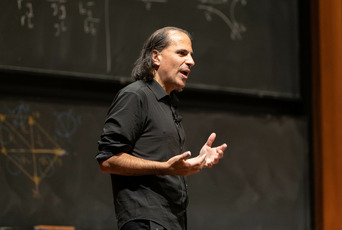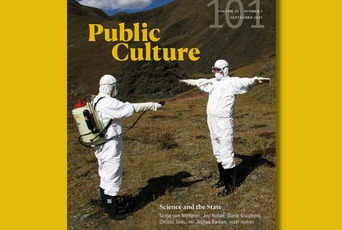
Magdalena Małecka Receives Consolidator Grant from the European Research Council
Magdalena Małecka, Deutsche Bank Member (2020–21) in the School of Social Science, has been awarded a Consolidator Grant by the European Research Council (ERC) for her project investigating how the use of computer technology in modern economics has influenced economic research and the epistemological and political implications this has brought about.
The project, titled “Encoded Knowledge: Epistemology of Computer Technology in Modern Economics,” argues that the computer has not only been a tool in economic research but has shaped its subject matter, questions, and methods. Małecka’s project will last five years and employ an interdisciplinary team of three postdoctoral researchers in the pursuit of this hypothesis.
“[Computer technology] has been transforming economics for decades. Hence, it is high time to understand the outcome, meaning, and consequences of this transformation,” Małecka says. The project will also offer a critical perspective on the recent turn to artificial intelligence and big data in economics.
At IAS, where she participated in the Science and the State theme year, Małecka also developed a novel philosophical perspective on the social and behavioral sciences. Her project at the Institute, which combined insights from feminist philosophy of science, science and technology studies, and the history of science, challenged the epistemic presumptions underlying so-called behavioral policy based on findings from behavioral research.
Małecka's time at the Institute was also formative for her ERC project. “During the summer of 2021, I visited the Institute's Shelby White and Leon Levy Archives Center to look at the papers of John von Neumann [Professor in the School of Mathematics, 1933–55],” she says. “I came across materials from the vivid discussions in the 1970s about the 'implications of the electronic computer for economics' held during the von Neumann Computer Anniversary Conference and the articles by RAND researchers on modern economics, which they defined as an assemblage of 'theory, data, and computers.' I realized that these past discussions offer a conceptually refreshing and promising entry point for understanding the epistemic status of modern economics—back then, during the Cold War, and now.”
The ERC, set up by the EU in 2007, is the premier European funding organization for excellent frontier research. Every year, it selects and funds the very best creative researchers of any nationality and age to run projects based in the European Union and associated countries. Consolidator Grants are awarded by the ERC to researchers with 7 to 12 years of postdoctoral research experience “with a scientific track record showing great promise.”
Read more about the 2024 Consolidator grants on the ERC website.


